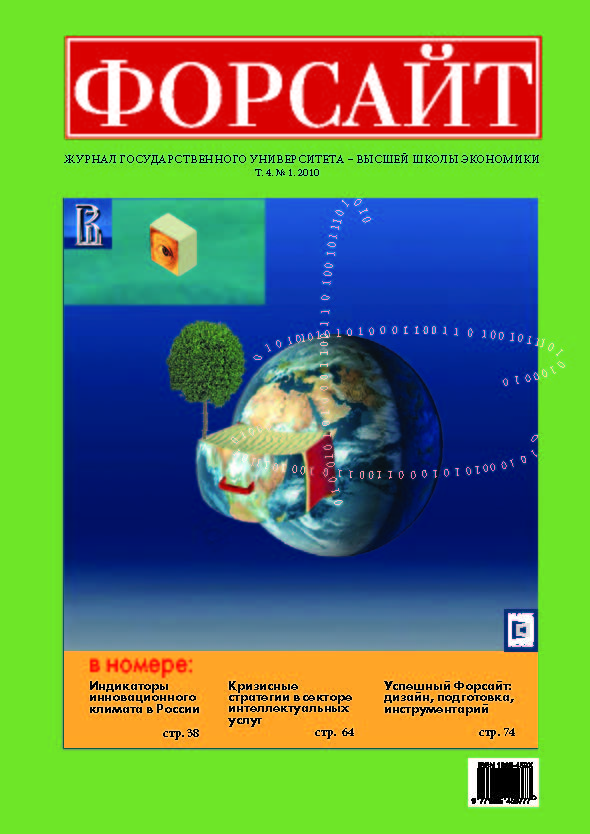Abstract
In the course of development, firms aim to internationalize in order to broaden their influence and enhance their opportunities. There are risks, however, in internationalization. This paper focuses on risks relating to cultural differences, which can affect a firm’s reputation when entering foreign markets. The specifics of markets can require perception of socio-cultural differences. A firm’s global image must be defined at headquarters, but the communication strategies should be defined by its local offices.
Andreas Siegert explains the complexity of the process by which the culture of the country of origin affects worldview and behavioral patterns that can become problematical, or raise risks, in relations between representatives of the two different cultures. The general components of national culture—religion, ethical norms and traditions—evolve slowly within definite parameters. Misunderstandings between culture at headquarters and culture in the country where the branch is located can embrace legal awareness, interpretation of contracts, and perceptions of product quality.
The paper uses for a case study Russo-German corporate relations. It reviews aspects of national character in both countries, patterns of negotiation, the perception of details of co-operation, and organizational etiquette. Russia is an important market for German firms, and therefore, consideration of cultural diversity will entail unique business-strategies. The paper uses examples of German employees, recruited only for their skills and experience, that is, neglecting their understanding of Russian norms and traditions, who can fail to communicate well.
The paper advances the solution in the creation of an international team aimed to develop a cooperative climate that will transcend distinctive frameworks of existing cultural practices. There is abundant evidence that international teams perform well when identifying problems and seeking out innovative solutions.
References
Backhaus K., Bьschken J., Voeth M. (2000) Internationales Marketing (3rd ed.). Stuttgart.
Brunner M. (2007) Beschдftigungssituation von Menschen mit Migrationshintergrund im Handwerk. Mьnchen.
Dьlfer E. (1989) Umweltbeziehung der International Tдtigen Unternehmung. Stuttgart: HWInt. S. 2097-2111.
Hofstede G. (1994) Communicating Across the Pacific. Paper presented to the Pacific Region Forum on Business and Management Communication.
Kessler U. (1999) Auslandsknigge, Verhaltensregeln, Geschдftssitten, Etikette. Lьbeck.
Kilian W. (2005) Adenauers Reise nach Moskau, Freiburg im Breisgau.
Knitter Ch. (2008) International Management: Internationalization as an Optional Component of the Strategy Development for SMEs. Mьnchen.
Larkey L. (1996) Toward a Theory of Communicative Interactions in Culturally Diverse Workgroups//Academy of Management Review. V. 21. № 2. Р. 463-491.
Macharzina K. (1993) Multinationale Unternehmungen/W. Wittmann, W. Kern, R. Kцhler, H.-U. Kьpper, K. von Wysocki (Hg.). Handwцrterbuch der Betriebswirtschaft (3rd ed.). Stuttgart. S. 2898-2905.
Meissner H.G. (1993) Internationales Marketing/W. Wittmann, W. Kern, R. Kцhler, H.-U. Kьpper, K. von Wysocki (Hg.). Handwцrterbuch der Betriebswirtschaft (3rd ed.). Stuttgart. S. 1871-1888.
Meyer Th. (2004) Interkulturelle Kooperationskompetenz. Frankfurt (Main).
Niederkorn M., Barth A., Becker A., Schulze L. (2008) Major Changes in a Globalized World/Managing Challenges in a Globalized World. Mannheim. S. 19-34.
Perlitz M. (1994) The Impact of Cultural Differences on Strategy Innovations//European Business Journal. № 6. S. 55-61.
Perlitz M., Seger F. (2008) European Cultures and Management Styles/M. Niederkorn, A. Barth, A. Becker, L. Schulze (Hg.). Managing Challenges in a Globalized World. Mannheim. S. 293-328.
Podsiadlowski A. (2002) Multikulturelle Arbeitsgruppen in Unternehmen. Bedingungen fьr Erfolgreiche Zusammenarbeit am Beispiel Deutscher Unternehmen in Sьdostasien. Mьnster.
Ravlin E., Thomas D., Ilsev A. (2000) Beliefs about Values, Status and Legitimacy in Multicultural Groups/P.C. Earley, H. Singh (eds.). Innovations in International and Cross-cultural Management. Thousands Oaks CA. P. 17-51.
Schrank R. (2008) The Continued Need for Strategy Innovations: Post Modern Strategic Thinking and the Blue Ocean Approach/M. Niederkorn, A. Barth, A. Becker, L. Schulze (Hg.). Managing Challenges in a Globalized World. Mannheim. S. 191-204.
Schroll-Machl S. (2003) Kulturunterschiede: Ergebnisse de Kulturstandardforschung, Deutschland/A. Thomas, St. Kammhuber, S. Schroll-Machl (Hg.). Handbuch Interkultureller Kommunikation und Kooperation. V. 2: Lдnder, Kulturen und Interkulturelle Berufstдtigkeit. Gцttingen. S. 72-89.
Schulze L. (2008) The Impact of Multicultural Top Management Teams on Strategy Innovations/M. Niederkorn, A. Barth, A. Becker, L. Schulze (Hg.). Managing Challenges in a Globalized World. Mannheim. S. 281-292.
Sepheri P. (2002) Diversity and Diversity Management in Internationalen Organisationen. Mьnchen.
Siegert A. (2008) Motive Hochqualifizierter Russischer Transmigranten, nach Deutschland zu Emigrieren. Eine Studie unter Russischen Akademikern. Aachen.
Steinmann H., Schreyцgg G. (1997) Management. Grundlagen der Unternehmensfьhrung. Konzepte -Funktionen -Praxisfдlle. Wiesbaden.
Trompenaars F. (1993) Riding the Waves of Culture. London.
Ulrich P. (1993) Unternehmenskultur/W. Wittmann, W. Kern, R. Kцhler, H.-U. Kьpper, K. von Wysocki (Hg.). Handwцrterbuch der Betriebswirtschaft (3rd ed.). Stuttgart. S. 4351-4366.
Wiesner K. (2005) International Management. Mьnchen/Wien.
Воспроизводство научной элиты в России: роль зарубежных научных фондов (на примере Фонда им. А. Гумбольдта) (2005)/Под ред. А.Ю. Чепуренко, Л.М. Гохберга. М.: Российский независимый институт социальных и национальных проблем.

This work is licensed under a Creative Commons Attribution 4.0 International License.

